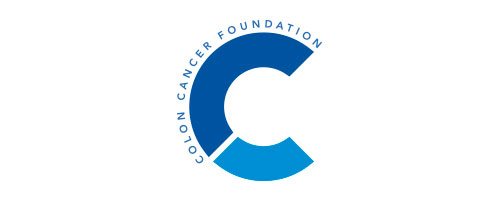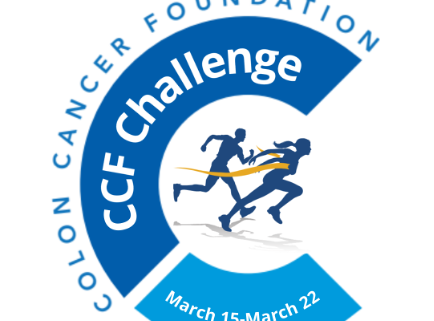With activities in full swing across the U.S. during National Colorectal Awareness month in March, the Colon Cancer Foundation (CCF) spoke to Whitney Jones, MD, founder of the Colon Cancer Prevention Project (CCPP, Louisville, Kentucky), about the foundation’s history, their success with flipping colorectal cancer (CRC) screening rates in the state, and their vision for the future.
Back in 2003, Dr. Jones, a gastrointestinal specialist, was shocked when he encountered several individuals who should have been screened for CRC, presenting with advanced colon cancer in his clinic. Intrigued by this, he found out that Kentucky ranked 49th for CRC screening rates and led the nation in incidence and mortality. It was then that he decided to make changes in the space and started the foundation the same year.
Partnerships to Help Move the Needle on Preventive Screening
While early years were focused on developing informational flyers and attending health fairs, by 2008 CCPP’s attention shifted to influencing policy changes, such as making sure CRC screening received preventive care coverage. They simultaneously developed a screening program for the state’s uninsured populations under the oversight of an advisory committee (healthcare providers, policy experts, and legislators) that continues to meet on a monthly basis even today.
In 2015, CCPP began promoting lead-time messaging and on-time screening, with a particular emphasis on high-risk and younger populations. “We called out, not the guidelines, but in fact our strategy for implementing our guidelines,” he said, which culminated in a paper on establishing a standard process for timely messaging for CRC screening for both average-risk and high-risk individuals, with an overall goal of changing mindsets. “If we have to reach disparate populations, we have to start earlier, message more frequently, and offer more choices,” Dr. Jones said.
CRC screening compliance is mainly driven by primary care providers (PCPs) and health care systems. “Gastroenterologists are the catchers, and the PCPs and health systems are the pitchers,” he said. “We can no longer trust opportunistic screening as in the past. We need to aim for a more systematic, longitudinal, benchmarked system for evidence-based and guideline-driven screening.”
This, he added, will require participation from payers, Medicaid, and the Department of Insurance to instill policies such as coverage for a colonoscopy following a positive FIT test, or genetic testing for those who meet criteria. Additionally, partnering with organizations that understand the local landscape—such as the Cancer Prevention Programs at a safety-net university-based hospital—provides vital on-the-grounds insight. Dr. Jones’ recommendation is for each state to create a statute for an advisory committee or a technical advisory committee that includes lawmakers and insurance companies, to help develop, clarify, and implement CRC policy.
To spread the success of their state-based screening programs, CCPP is partnering with FightCRC to replicate Kentucky’s success in other states—especially in the context of stakeholder engagement. “The key was really in engaging all of our partners that we have now and asking them, ‘What power can you bring from your organization to really advance something?’” He strongly believes that having a CRC-focused organization lead the charge can have a huge impact on moving the needle and getting things done for the community.
Family Health History for On-Time Screening
We all know that disparate platforms make it difficult for sharing information across electronic health records (EHRs). Add to that the time constraints faced by practitioners and gathering accurate information about a person’s family health history (FHH) could be really challenging. Dr. Jones’ vision rises a step above that—using an AI-based system that will gather FHH, critical to Hereditary Cancer Risk Assessment, prior to a patient’s appointment and integrate it within their EHR, compare it to existing guidelines, and provide the physician with a recommendation that can guide the conversation during the patient visit. “Logistics and informatics will play a significant role in improving our struggles with on-time screening,” Dr. Jones added.
45 IS The New 50: Now What?
While the debate over when to start screening average-risk adults is over (see USPSTF draft recommendation), onboarding 20-21 million people across the country in the 45-49 age group is going to be a challenge, especially during the COVID-19 pandemic. Catching-up will require a dramatic increase in the utilization of stool-based testing. “While we cannot conduct colonoscopy in all the new population, we can definitely send them stool-based testing kits. That’s what health systems should focus on,” Dr. Jones said.
In Kentucky, CCPP has been preparing hospitals, health systems, insurance companies, and large group payers since mid-2020 to adopt these guidelines as soon as they are finalized. The focus is on communicating with folks in their late 30s to inform them about symptoms, screening the high-risk population at age 40 or sooner with colonoscopy, identifying candidates for whom genetic testing is appropriate and for average risk individuals, and screening with either stool-based tests or colonoscopy in a shared decision-making model.
“Forty-five should be the finish line for starting risk-based CRC screening communication, not the starting point,” Dr. Jones said.


